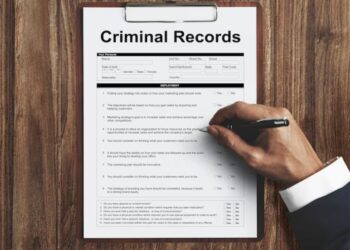Lease agreements serve as the cornerstone of any landlord-tenant relationship, delineating the rights, obligations, and expectations of both parties with legal precision. Within these agreements, the inclusion of carefully crafted legal clauses plays a pivotal role in safeguarding the interests of landlords and tenants alike. These clauses act as the building blocks of the lease agreement, forming a protective framework that guides the behavior of both parties throughout the tenancy period.
Legal clauses are essential components that provide clarity, structure, and enforcement mechanisms within the lease agreement. By incorporating specific clauses, landlords can establish clear guidelines regarding various aspects of the tenancy, ranging from rent payment schedules to property maintenance responsibilities. These clauses not only define the boundaries of the relationship but also serve as critical tools for resolving disputes, enforcing obligations, and ensuring accountability on both sides.
To streamline the process of creating and managing lease agreements, property management software can be an invaluable resource. Such tools allow landlords to draft, customize, and store legally compliant lease templates with ease, ensuring that all critical clauses are consistently included and up to date with current regulations. Additionally, property management software can automate reminders for important deadlines, such as lease renewals or rent due dates, further reducing the risk of oversight.
When crafting a comprehensive lease agreement, landlords must pay close attention to the inclusion of key clauses that are fundamental to protecting their property, managing risks, and upholding their rights under the law.
Identifying Information
To begin with, the lease document should contain the Full Name of the Landlord. This has to do with the fact that such a piece of information assists in defining exactly who the landlord is and the legal position of such an entity about the general contract entered into concerning the leased property.
The lease document must however not miss to include the Tenant/Tenants Full Legal Names. With this, the names of the tenants signing the contract are made specific, thereby alleviating any possible confusion concerning the parties that are obliged to the contractual obligations and the legal lease terms.
The Property Address is one of the most critical parts of the agreement even though it sounds very simple. To guard against any loss or confusion regarding the subject property, the inclusion of the accurate physical address of the rental property assures all parties that they clearly know the exact address of the leased premises.
Lease Term Details
Whenever property owners negotiate or execute rental agreements, the leases used are generally either closed for one or two specific dates or are enclosed on a month to month basis.
A fixed-term lease can be defined as a contract that establishes certain dates by which the tenancy will commence and be concluded. Under this tenancy, both the landlords and the tenants are bound to the lease for the time specified to create stability for all concerned. In contrast, a month-to-month lease is more open.
There is a month-to-month lease that automatically renews unless either party’s notice has been received to indicate that she has no intention of renewing the agreement. This gives rise to a lease with greater flexibility in the length of stay but it comes at the cost of assuring the length of tenancy posing challenges in long-term management both to the landlords and the tenants.
Key Components:
Begin and End dates for Fixed Leases
Generally aimed at avoiding misunderstandings, a provision should be included in the fixed leases indicating the specific start date of the tenancy and the end date. By specifying the start and end date for the lease agreement, it is easier to eliminate conflict as both parties are informed of the duration of the lease hence the chances of disputes being arising are limited as no one will be confused as to how long the property will be rented.
Parameters of Notice for Re-newing or Ending the Lease
Parameters of notice for renewing or ending the lease are very important in lease agreements since they tell the person who wishes to extend the tenure of the lease agreement as well as those who want to end it the period they have to do so. In the same context, a lease should contain as many clauses as possible about the circumstances under which the lease is to be renewed and the notice periods that shall be required in case one of the parties intends to terminate it. Clear guidelines in this case empower smooth changes in relationships and prevent abrupt changes in the landlord-tenant relationship.
Rent Payment Terms
When someone is licensed to go to a rental housing unit, it is preferable to specify the monthly rent amount that the tenant is expected to pay. Such cash figures ought to be elaborated in the lease agreement to enable both parties to anticipate their cash outflows throughout the tenancy.
Payment Due Date
Also to avoid any disputes about when the tenant ought to make the payment, it is essential to use the due date for payment. Conclusively stating the payment date helps landlords have a more manageable relationship with tenants. It also shields homeowners from any misunderstandings of the due date.
Accepted Payment Methods
It is vital to explain the methods of payment for rent because this makes it easy and possible for the tenant to honor his or her financial obligation. There could be different forms of payment but landlords need to indicate the one or more which they are willing to embrace such as cash, check, bank transition, email payment, etc. Providing options also caters for the demands of specific tenants and reduces the difficulty of collecting rent from them.
Policies and Penalties for Late Payment
With the exact policies of tenants dealing with late rent payments, one can give the reasons why the payment has been delayed and also maintain financial discipline as mentioned in the lease agreements. The landlords also need to state what late payments would attract in terms of some fees, interest, and even other specific penalties. Capping a certain number of days within which the late payment charge applies would be beneficial as the tenants can attempt to make up for any breach of the terms that was encountered.
Fixing the Amount of Security Deposit and the Conditions for its Return
Tenants are expected to save a security deposit to protect landlords against possible loss through shocks like damages or nonpayment of rent. In this regard, it is essential to state the required amount the tenant will deposit before occupation of the house. In the second paragraph an explanation of the conditions for which the deposits may be deducted, and the return of the deposit at the expiration of the agreement has been made, both constitute the essence of this clause. A clear explanation of this issue is beneficial since it promotes understanding and reduces disputes regarding deposit deductions as well as other aspects of leasing to the benefit of the two parties.
Maintenance and Repairs
Within the scope of a lease agreement, the responsibilities of the landlord must be clearly defined. One such is related to Structural Repairs, which, means that the premises leased are not to be left by the landlord without sufficient foundations. It includes a promise to deal with the issues about the foundation, walls, roof, windows, and doors to ensure that the property is fit for habitation during the entire period of the lease.
Apart from the structural repairs, another major area of concern of the landlord’s responsibilities is also the Health Codes Compliance that is, in addition to the structural maintenance and many other aspects. It is the responsibility of the landlord to ascertain that such rental property complies with rules and regulations that are relevant to health and safety concerns. This emanates from such issues as pens for the control of mold, control of pest infestations as well and the provision of a wholesome environment. The lease agreement identifies specific duties such as these, the reasonable expectation would be that the landlord will create a healthy and secure living environment for the tenant.
On the other hand, the lease agreement has to illustrate the items that are required of a tenant. Property Maintenance surfaces as a primary duty – one which requires a tenant to keep the premises that have been rented out in a clean and orderly state. This includes performing basic cleaning duties, maintaining the yard, and appropriate disposal of garbage so that the digestive tract of the building remains in a decent state at all times above culture level during the tenancy period.
Rules for Property Use
The importance of this clause is that it should protect the welfare of the tenants first – by restricting the population density, and secondly, protect the landlord from legal complications that may arise due to the breach of the occupancy requirements.
As far as property owners are concerned, including Subletting Restrictions in the lease agreement is important whenever a landlord wants to limit the number of persons who may have access to their premises. This provision stipulates the limitations that are placed on tenants wishing to let the rental unit to an individual other than the landlord, who approves such arrangements to be made.
As tenants’ subletting practices are clearly defined, landlords can stop having unwanted tenants, have security issues, and are the only person legally responsible for any lease violations, the initial lessee transfers his/her rights over to the subletting to such persons.
Policies on pets clause help the landlords to solve the problems regarding pet ownership on the premises. This clause presents the definite rules and regulations concerning pets, such as whether pets are allowed, size, deposit for pets, and what is expected of pet owners.
Access to the Property
Particularly concerning access to the rented property by the landlord, it should be included as part of the lease agreement terms and conditions. Incorporating such detailed provisions on the matter helps the landlord to secure their interests in the tenancy, as well as make sure that the tenants’ rights are not violated during the tenancy agreement. These advance notice obligations help other parties know when it is permissible to go into the rental space and what number should be observed as the minimum within the notice letter.
In addition, however, indicating the reasons for entry is also important in preventing potential disputes between the landlord and the tenants. This will help in determining the kind of places the landlord shall be able to get the renter, which includes but is not limited to repairs, tenant changes, visiting the property to show potential buyers, or any other situation that may require such activities. It also defines the scope of the landlord-tenant relationship, thus enhancing decorum and cooperation within the two fields.










